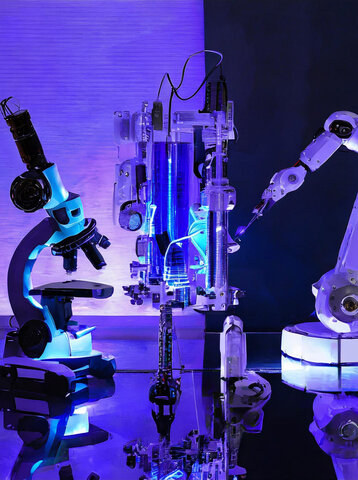Research is our priority
We are experts in applied research! Our fourteen specialist research institutes carry out excellent research work at HFU:
- Internal link opens in the same window:Institute for Applied Public Health and Exercise Medicine (IfAG)
- Internal link opens in the same window:Institute for Data Science, Cloud Computing and IT Security (IDACUS)
- Internal link opens in the same window:Care & Technology Lab (IMTT)
- Internal link opens in the same window:Institute for Microsystems Technology (iMST)
- Internal link opens in the same window:Institute for Mobility and Infrastructure in Rural Areas (MIR)
- Internal link opens in the same window:Institute of Technical Medicine (ITeM)
- Internal link opens in the same window:Institute of Precision Medicine (IPM)
- Internal link opens in the same window:Institute for Smart Systems (ISS)
- Internal link opens in the same window:Institute of Materials Science and Engineering Tuttlingen (IWAT)
- Internal link opens in the same window:Institute of Applied Biology (IANB)
- Internal link opens in the same window:Institute of Precision Machining (KSF)
- Internal link opens in the same window:Public Science Lab (PSL)
- Internal link opens in the same window:Institute for Intelligent Interactive Ubiquitous Systems (IIIUS)
- Institute for Product and Service Engineering (IPSE)
